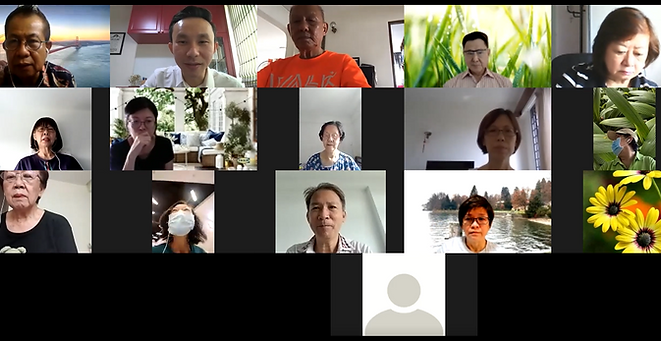
Among all the positive traits effective leaders bring to the workplace, research has revealed an attribute that is more reliable in predicting overall success than our intelligence quotient (IQ) – our emotional intelligence (EI or EQ). EQ is defined as the capacity to recognize and effectively manage personal emotions in ourselves and in others.
In this talk, we will explore empathy and assertiveness at work. Workplace conflicts, stress or burnout are not uncommon, and when you sense that someone is feeling bad, depressed or
disheartened, how do you respond? Also, when you are faced with demanding person or opposing views, how do you respond? Assertiveness is important to fostering meaningful workplace relationships. You can feel comfortable expressing your opinion, even if it's different from your colleagues. Relevant examples and strategies will be shared with the participants.

Among all the positive traits effective leaders bring to the workplace, research has revealed an attribute that is more reliable in predicting overall success than our intelligence quotient (IQ) – our emotional intelligence (EI or EQ). EQ is defined as the capacity to recognize and effectively manage personal emotions in ourselves and in others.
In this talk, we will explore self-regulation and motivation at work. In the workplace, differing views and pressures are inevitable, and having the ability to regulate and manage your emotions can help you navigate through such tense situations. In order to have a fulfilling career, it is important to engage intrinsic motivation and connect with our values and purpose. Otherwise, work becomes a chore and you'll not be giving your best. Relevant examples and strategies will be shared with the participants.

This talk provides insights on organisational change and help employees to navigate through different states of change (current, transition and future) and their emotions. Participants will learn about various actions that can hinder or help the states of organisational change. There are basic messages of emotions and reasons for employee resistance. They will also learn to recognise some of the common feelings towards change. Reflective questions and consequential thinking of not changing can redirect negative thinking and unpleasant feelings.

This talk aims to encourage and exercise optimism in participants by identifying maladaptive thoughts and beliefs and adopting positive perspectives and suggestions. Adversity role models will also be shared with the participants to increase their optimism. They will experience a relaxtion exercise to strengthen their confidence and positive outlook.

We discussed on some struggles that people may face e.g. smoking, gaming, binge eating/drinking, overspending, etc. Some people may indulge in pleasure or enjoyment to an unhealthy level that disrupts their goals and/or health. We explored key strategies for overcoming these struggles.

We explored the purposes / intents of our communication. Some people may be excellent in communicating their perspectives / opinions but fail in connecting with others. Others may lack courage to assert their ideas that can benefit the groups. We discussed different communication styles for various situations.

We help people to uncover their conviction or compelling goals such as careers, social causes, passions, etc. With so many voices & influence in the society, one can be easily influenced by others to pursue a direction that may not be their strengths. We explored how we can uncover our conviction.
